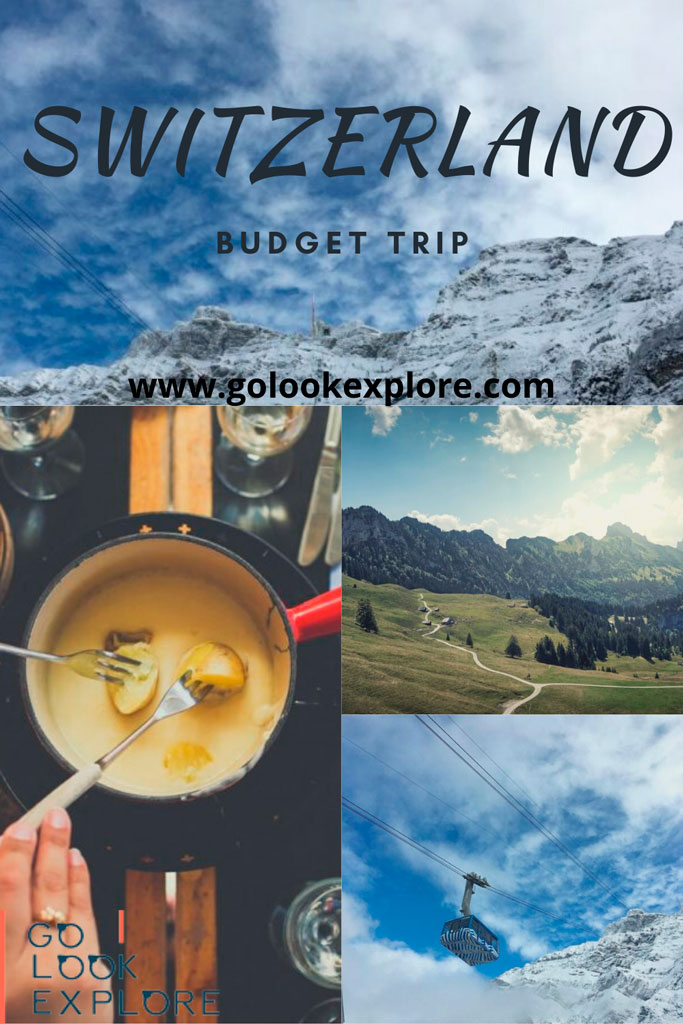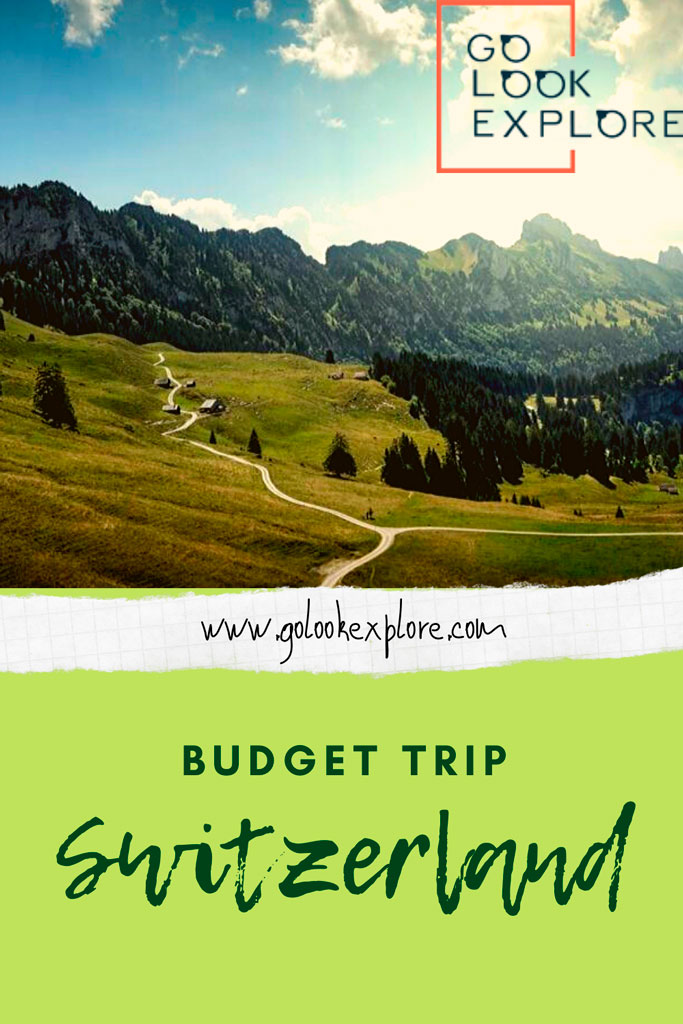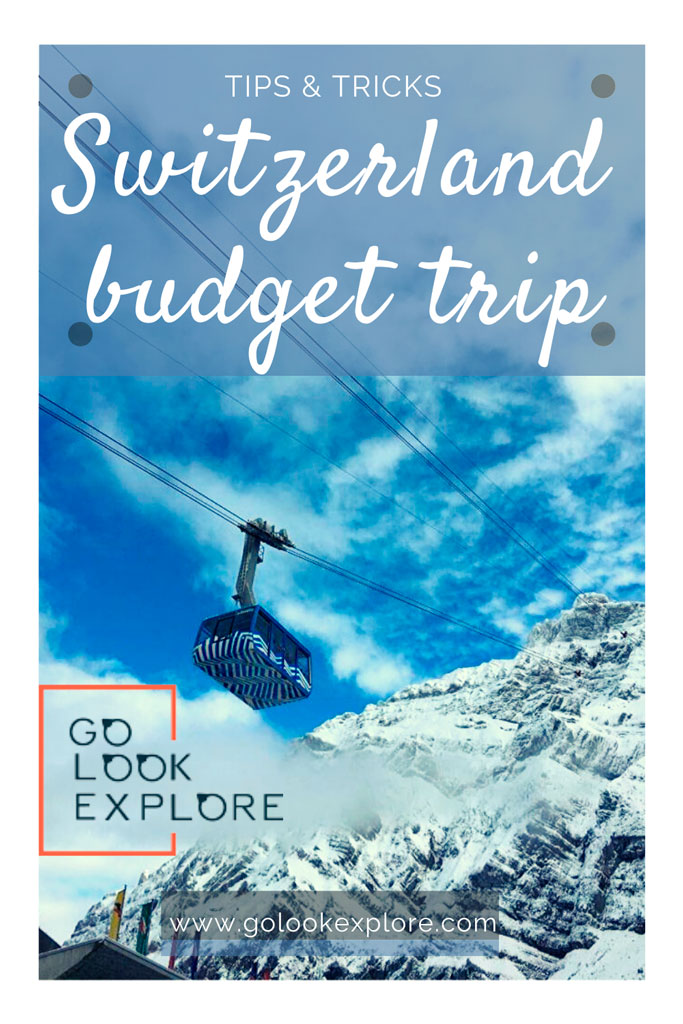Switzerland is one of the most expensive countries not only in Europe but all around the world, so travel Switzerland on a budget can be tricky. People in Switzerland live a very comfortable life, but for a casual tourist, a trip to Switzerland can be a huge financial burden.
Do not get discouraged to visit this amazing Alps country. You are going to love each day in Switzerland if you follow my tips on how to do it on a budget and save extra money.
I am going to discuss all I know and experienced myself: food, transport, accommodation, restaurants, paid activities, and so on.
So let’s enjoy Switzerland on a budget without breaking the bank.
p.s. I’ve been living in Switzerland for a while, so if you’d like to know how much does it cost to live in Switzerland, feel free to read my guide.
Table of Contents
How to Get to Switzerland & Getting Around
It depends as well how you are going to get to Switzerland: by plane or by your own car?
If possible, come to Switzerland in your own car, so this way you are going to save tons of money for traveling around. Having your own car can make your Switzerland budget trip much easier.
First thing you need to do if you come to Switzerland in your own car – buy a Swiss Vignette.
Motorways in Switzerland are paid, but you pay just once when you enter and you get that sticker (which you will have to put on your car front window) for the whole year. The cost of the Vignette is 40 CHF.
I actually think it is a good deal as highways in Switzerland are top-notch, you don’t pay additionally for any tunnels (like in Austria), there are no extra good roads where you must pay (like France or Italy), mountain roads are free and so on.
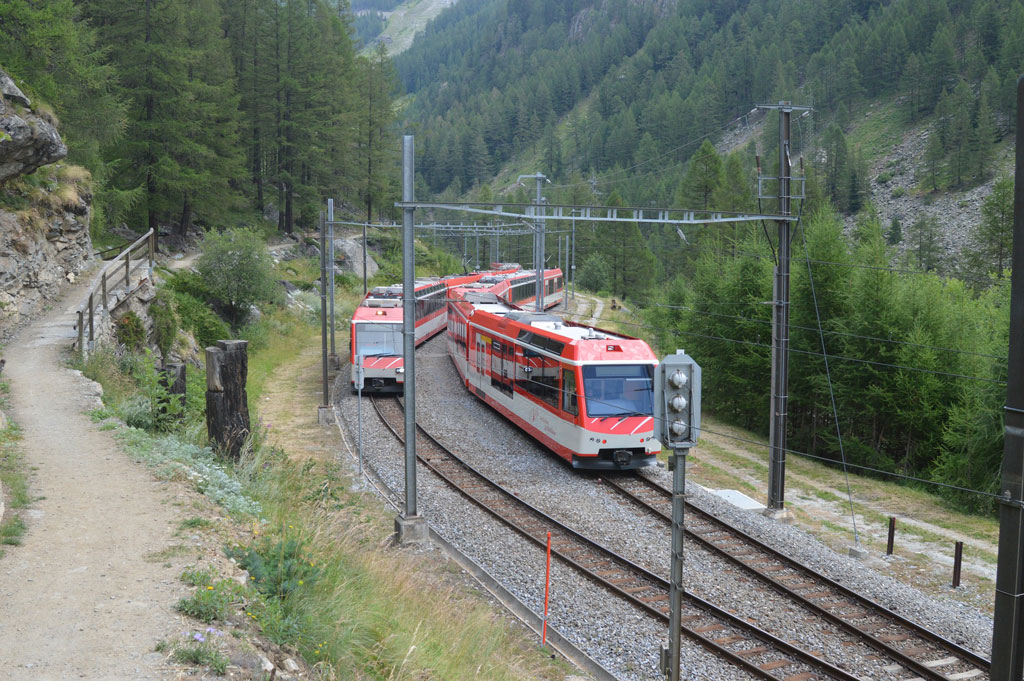
Please BUY Vignette because…
There’s a very high chance that police will get you and that will cost you much much more. Swiss roads are filmed and constantly overlooked by police, so you have a very slim chance to trick the system.
Ok, so let me explain why I think it is better to come to Switzerland with your own car.
Switzerland has a really good public transport coverage, but if you want to go to mountain passes and other Swiss Alps regions or small villages, that will come up to a pretty substantial amount of money. As well with buses and trains you are not that flexible, you must follow all schedules and sometimes if the weather is good, you don’t want to leave the mountains 🙂
Still, if you want to travel by train, you must get a Swiss pass. Check out my full guide on how to use public transport in Switzerland: How to use trains in Switzerland.
Swiss pass will save you a lot of money, especially if you are planning to travel a lot. There are few options for different time durations. Train tickets, if bought straight in the train stations can get very expensive, to get to someplace (let’s say cross Switzerland from Zürich to Zermatt), can cost 200 CHF just one way. So the Swiss Pass is a huge money saver. Check all info about it right here.
If you come to Switzerland by plane and you are a bigger group of 3-5 people, I highly recommend renting a car and go to the mountains, be flexible, drive around. You can get a decent car for 100 CHF a day and save lots of money instead of each of you spending money on train tickets.
How much does it cost to rent a car in Switzerland
As usual, it is the most common to rent a car right in the airport and Zürich airports has plenty of options: Rent a car in Zürich airport.
3 days car rent in Switzerland can start from 220 CHF plus some additional insurance fees, but that is already cheaper than train/bus tickets for 3 days for one person. Check out my 3 day Switzerland itinerary, you can see so much with a car in 3 days.
Gas Prices in Switzerland
Gas prices in Switzerland are one of the highest in Europe, I personally saw higher just in Norway and Switzerland. One liter of diesel in Switzerland can get up to 1,80 euros on highways (highway diesel is the most expensive). Or even more. A normal price would be 1,55-1,65 euros. So that’s not cheap.
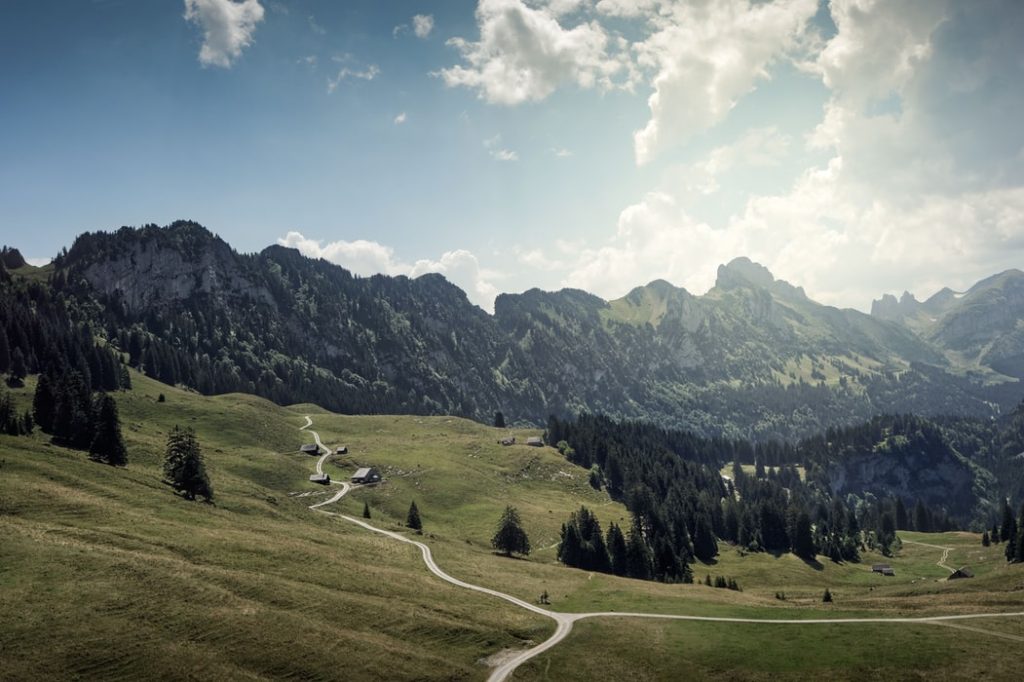
So if you want to save some money, buy your diesel/petrol outside Switzerland. The best prices are in Germany. Fill it up near the border and enjoy your ride in Switzerland. France is less expensive as well, but Italy has almost the same prices.
So if you go to Switzerland via Germany or you happen to be next to the border, get gas in Germany.
Switzerland budget trip includes buying stuff, not in Switzerland 🙂
Food Prices in Switzerland
The food prices in Switzerland are definitely the highest in Europe according to much statistical research. Check out beautifully designed graphs and piecharts that show more about food prices.
So how to get around on a budget?
First, you need to buy stuff in the right shops.
More expensive shops are Migros and Coop, cheap ones are Aldi, Lidl, Denner, and Volg. According to my experience, Denner is the cheapest one, but Adli and Lidl are pretty close 🙂
You can even get some warm food in there for a decent price.

What is really expensive in Switzerland is meat. There’s almost no way around it. It is pretty common to pay 5-8CHF for 100 grams of meat.
Sometimes in the mentioned shops, you can find a super deal for 3CHF (100 grams meat) or even less, but it is unlikely. Meat is expensive. You may try to be vegetarian during your holiday. 🙂
Of course, you can buy as well lots of food in Germany or France or Italy and use that food later on in Switzerland.
If you have a chance to heat the food, the frozen food is pretty decently priced in Switzerland.
Take Away Food Prices
Well, the lowest price for taking away the pizza I saw in Switzerland was 10 CHF. Kebab – 8-10 CHF. Coffee in Starbucks? Be ready to pay 5-6 CHF for a cappuccino.
Sushi? That is pricey if you want to travel on a budget, avoid sushi. 🙂
What can be quite cheap is some Chinese food, but don’t expect to get a meal for less than 10 CHF.
Restaurant Prices
I will give you a simple example. I was a few days ago in Morcote (check out my Morcote adventure) on the Italian side of Switzerland, in a pretty simple restaurant, not fancy or high priced. So I took one pizza, espresso and a glass of coke. In total, I’ve paid 27.70 CHF (around 25 euros).
An ordinary meal in a restaurant can be at least 15 CHF, anything more fancy would be 25-40 CHF for a meal. Then drinks. Then coffee.
I would really suggest trying some local fondue or raclette, but if you want to travel on a budget, I suggest skipping restaurants.
Accommodation in Switzerland
If you find a hotel room (for two, shared bathroom, or even your own bathroom) for less than 100 CHF, consider it a good deal. If you find anything for less than 80 CHF – that’s a mega super deal.
Hostels can get cheaper – probably 30-40 CHF for a bed.
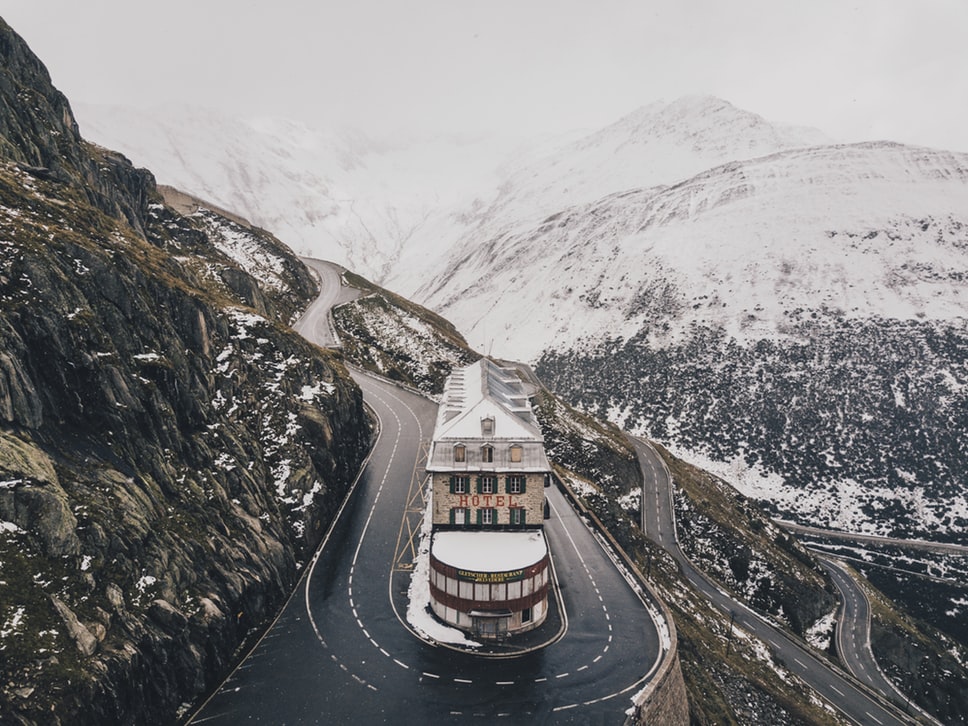
Mountain huts are mostly more expensive than hostels and you have to hike to them, very few huts are close to the roads. And in a hut, you have to sleep with many more people than in a hostel. If you are a hiker and nature lover – I highly recommend sleeping in a hut.
If you’re into hut hiking, be sure to check my hut-to-hut hiking guide around the Swiss Alps.
Campsites for two adults vary from 30 to 100 CHF. It really depends on the location and season. If you are not with a camper, you can build your own tent. In most campsites, you will get electricity, wifi, showers, and even a kitchen.
Camping in the wild nature is not really allowed, especially by the lakes, private places, rivers. It depends on canton rules, but I wouldn’t do wild camping somewhere in the mountains. As well, in the mountains, it is hard to find a flat safe place to pitch your tent.
Sometimes farmers let hikers pitch their tents on their land, but you first must ask.
You can as well sleep in your car in petrol stations or highway resting areas or in some places you find safe enough (of course not in the middle of the city or private land). I have done it a few times, have a look at my tips on my road trip report – Sleeping in a car in Switzerland.
As well, some people, if they come in a car, can jump out for a night from Switzerland and sleep in Italy, Austria, Germany or France 🙂 They are all very close. For example in the place I live in, France is 5 km from me, Germany is as well 5 km from me 🙂
If you travel in Ticino canton, near Lugano, you can sleep in Italy. If you travel to Geneva, you can jump to France for a night.
Parking in Switzerland
If you travel by car in Switzerland be ready to pay for parking in almost any location. You may have to pay for parking in some small isolated villages. They take parking seriously. Always have some cash, especially if you want to park not in the underground parking.
Is it possible to find free parking in Switzerland? Yes, but it may be tricky, especially if you want to park in some specific location or village. If you just drive around and look for a place to park, you can find it by some forests or mountains, not everything is paid for, but sometimes even in remote places parking is paid. For example in places like Grindelwald or Isenfluh and many other villages, you won’t be able to find something free.
Mostly in remote locations or villages you pay for the whole day, the common price is 5 CHF. In big cities, you pay for an hour. Hour price can be from 0.5 CHF to 4 CHF.
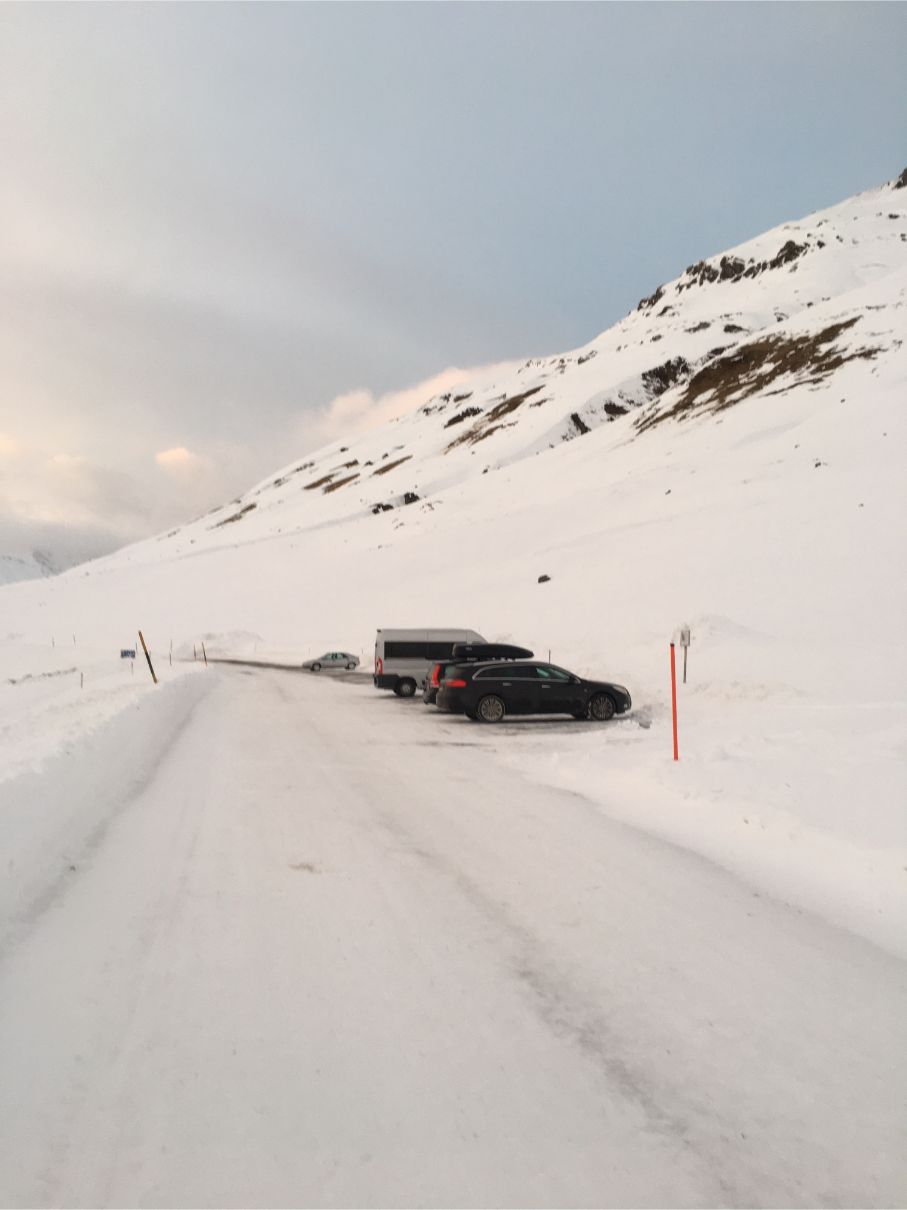
How to save money on parking in Switzerland
Well, almost all cities have very strict parking laws. For example, in Basel, I have to pay 280 CHF a year for a parking spot in my district (not in all the city). And I don’t get a parking spot, I am just allowed to park in the streets of that district in blue marked places.
But the city guests can as well park in those blue marked parking places if they buy the city parking ticket (the machines there they sell bus or train tickets mostly have parking tickets as well). So if you park somewhere in the city, look for a ticket machine and get parking for a whole or half-day.
Underground parking is much more expensive, especially in Zürich, I have paid once 28 CHF for 4 hours 🙂
As well, to save money, avoid big underground parking lots, those are the most expensive. Park in the streets, pay cash and enjoy the city, BUT sometimes in the streets parking is limited to 1 or 2 hours, so don’t park in such a spot, go further outside the city center and you will find places where you can park as long as you want.
Parking in the streets can be tricky in smaller villages as they want all the guests to park just in big parking lots, so do not park somewhere in the street as police may give you a fine.
In big cities, mostly, the parking is free from 7-8 pm to 7 am. So if you come late to the city, you can park for free and keep your car in the parking spot till early morning, after that the police is very likely to see if you have no parking ticket. Be aware of that. I see police people going through streets and checking cars very often in the mornings.
Driving a Car in Switzerland
Always and always drive according to the speed limit. The thing is that in Switzerland they put in many various places temporary speeding cameras. They are everywhere!
In small cities, in villages, in highways, in road constructions – everywhere. If you see that speed limit is temporary 60, not 80, drive 60km/h. Always be aware of speed limits.
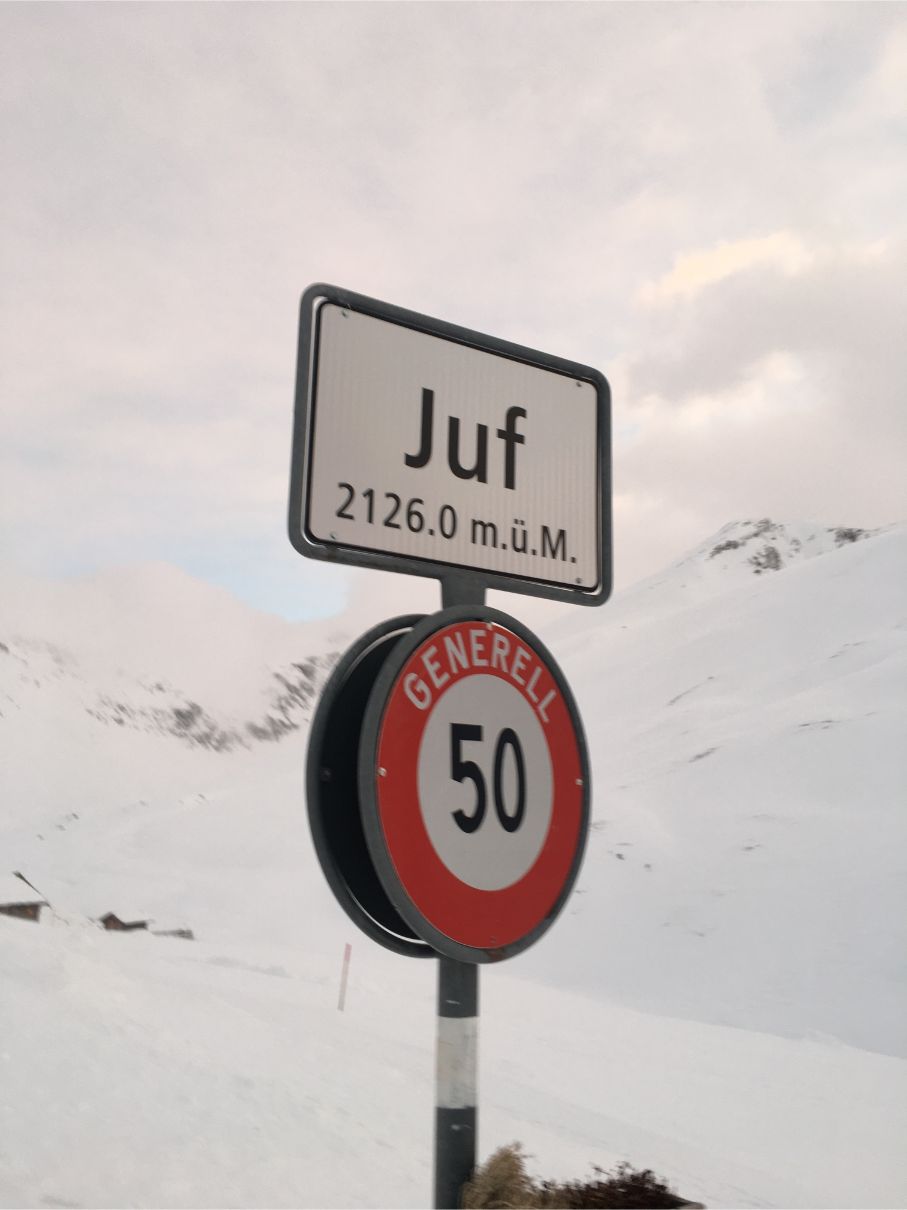
Speeding fines are very high in Switzerland. I once drove 8km/h too fast (and was caught by this temporary speed camera) – paid 120 CHF fine.
Do not make your Switzerland budget trip to Switzerland an expensive trip. 🙂
Cable Cars
Mountain gondolas do not come cheap in Switzerland, although they provide amazing views and take you to fascinating mountain locations. The cheapest gondola I have ever found was in Sulwald, it was maybe 5 min ride, cost me 12 CHF. The longer the ride, the higher you get, the more you pay. Do not be surprised to pay 50-80 CHF for a ride with the gondola, especially in the higher parts of the Swiss Alps.
If you want to save money, have an amazing hike up to the mountains, I have many recommendations on my website. 🙂
This way you do some sports, enjoy nature much longer and get amazing views for free. You can check out hiking in Grindelwald or hiking in Lauterbrunnen right now 🙂
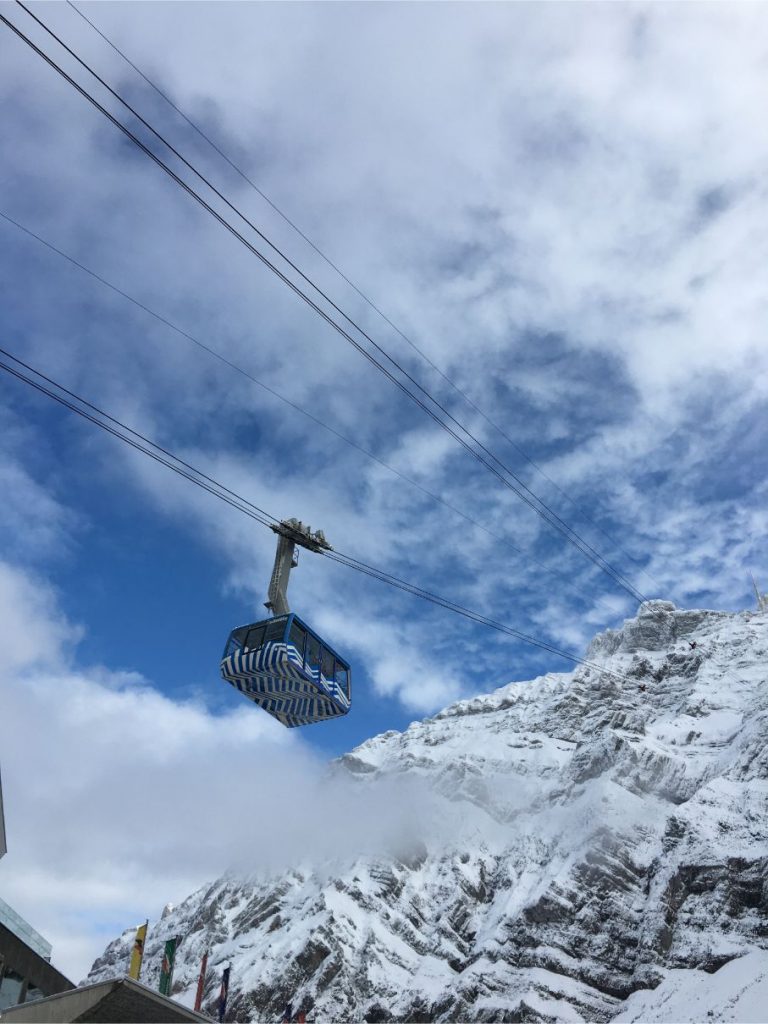
If you decide to hike up the mountains, pack some food and water, so you don’t have to spend money in the restaurants on the mountain.
If you want to get to some really awesome locations in Switzerland by train, I highly recommend Glacier paradise in Zermatt and Jungfraujoch in Grindelwald.
Free Excursions in Switzerland
It is possible in some big cities in Switzerland to get a free excursion. I think it is a great option for people who would like to know more about the city the visit and maybe even meet some people. I myself had great free excursion guides in Amsterdam, Stockholm, and Gent, so I can not recommend it more.
You can find some information about it right here – Free Switzerland Excursions.
To sum up Switzerland budget trip it very fast:
- Sleep in hostels, camping, or your car.
- Buy food in Aldi, Lidl, Denner or Volg.
- Avoid restaurants.
- Avoid expensive gondolas.
- Buy gas in the neighboring country.
- Park in the streets, not underground parking.
- Hike instead of using expensive mountain trains.
- If you travel with a group of friends – rent a car.
As well, do not break any laws regarding parking, speeding, building a tent, or something like that, because if you are going to be caught, that will double your expenses right away.
How much you can expect to spend in Switzerland a day
Switzerland is one of the easiest locations to spend a lot, as in every tourist destination you will find great restaurants, fascinating cable tours, posh hotels, and many other attractions. So you have to simply resist these things and you will not overspend.
Let us sum up a bit the possible daily costs:
- If you sleep in a hostel, you will spend around 40 CHF for a bunk bed, if you sleep in a double room with your partner or friend, you will spend again about 40-50CHF per person.
- If you are really into nature and have no problem sleeping in a tent, you can definitely find free places to do that.
- Food – if you do not visit any restaurants, 15-20 CHF per day should be really enough. Check out my shop guide in Switzerland.
- Transport. If you are going to rent a car and drive around 300km a day, with gas and rent you are going to spend up to 100 CHF a day. If you travel together, then it is up to 50 CHF per day per person or even less (with more people).
- If you do not use any gondolas and only hike in the most beautiful places of the Alps – that is completely free.
So as you can see, the costs can be very moderate and you can get around with 100 CHF a day.
That is it. If you have any questions about Switzerland and Switzerland budget trip before you come here, please let me know, I will do my best to recommend you best places, best hikes, find the cheapest solutions. 🙂
Pin it for later:
